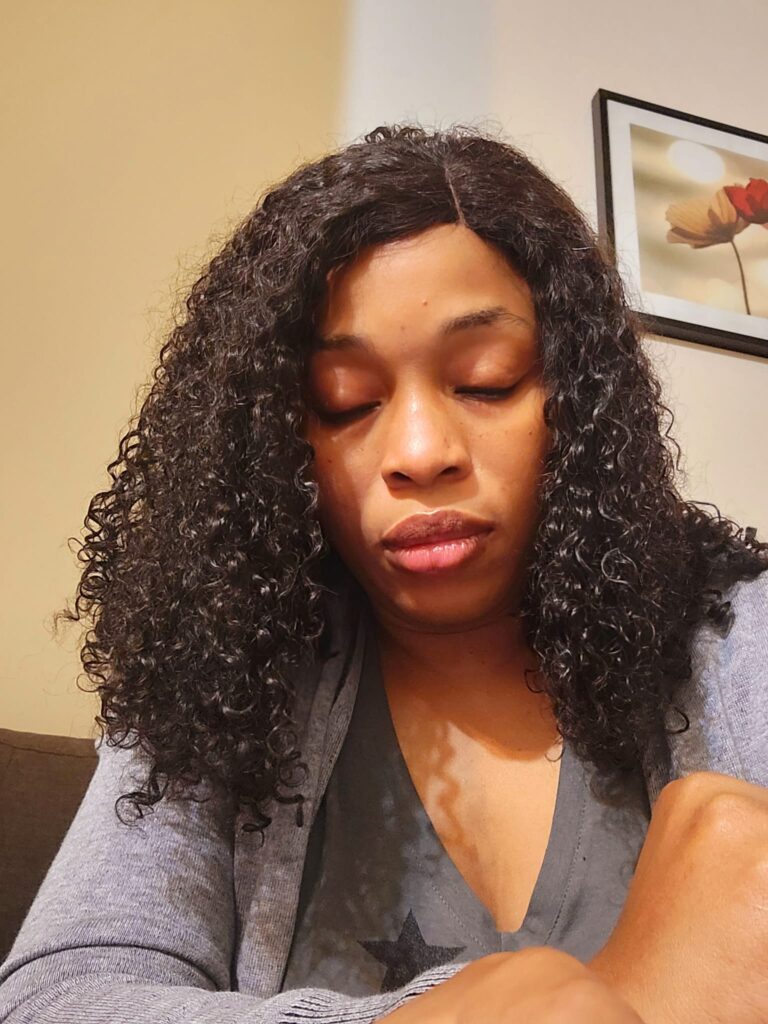Repressed emotions refer to emotions that you unconsciously avoid. These differ from suppressed emotions, which are feelings you purposely avoid because you don’t know exactly how to deal with them.
When you realize that you are repressing your emotions, you have to take drastic measures to stop it for your emotional and physical health.
I have struggled with this for many years, and it got intense when life happened.
I look back at some of the challenges I dealt with silently this year, and wonder how I survived.
I was in between repressing and suppressing my emotions just to stay grounded.
I battled with arm injury for many months, was on strong medications, yet I put on a brave front.
At some point, I couldn’t sleep for months as my pain kept me awake. I’d binge series on Netflix or pace my apartment, just to get my mind off the pain. Sometimes I practice “Mindfulness” through meditation.
I was struggling with balancing my duty as a parent, working, home schooling my daughters, and staying on top of things. I’d speak with folks and act “normal” even while I was breaking apart, drained and numb.
I have lived the past 11 months with repressed and suppressed emotions. Perhaps all of my almost 4 decades on mother earth.
I was encouraging people to stay positive, and telling them to keep faith, and keep pushing, yet I as dealing with my own physical pain that almost made me relapsed into depression, maybe I did and wish not to call it that.
I couldn’t lift the affected arm to say “Halleluyah” . Just giving a visual representation of how bad it was lol.
I was sleeping on one side for months, couldn’t sleep on my back either, as my shoulder blade and back were badly affected.

While dealing with my physical pain, I had other matters that threw me off balance; from breech of privacy, Gmail account hacked, laptop bugged, trespassing, and attempted theft. Just to mention few…
I almost lost my mind, but for God, my commitment to his word and prayer, plus Therapy.
Through my pain I found a stronger purpose in Christ. I started praying better and objectively without season.
I even turned my prayer to conversations, like God was sitting right in front of me.
I can’t also downplay the role Physio-Therapy played in my healing journey. Grateful to my Physio-Therapist (s). Two amazing humans who focused on my healing, and made sure I didn’t downplay the level of pain I was In. I guess they saw through my “Repressed emotions” approach. *Laughs*.
However, I had to also address my repressed emotions through therapy, on the count of separating spirituality from reality. I committed more time to Therapy.
I became intentional with Therapy, digging deep into my repressed emotions, and sharing some of my painful experiences with my Therapist (s).
What emotions are you repressing or afraid to confront?
How do those emotions affect your life ?
What measures are you taking to address those emotions?
What kind of emotions are you trying to repress? Anger, frustration, sadness, fear or disappointment?
Perhaps you grew up hearing things like:
- “You don’t have any reason to be sad.”
- “Calm down.”
- “You should be grateful.”
Childhood trauma is one of the major causes of repressed emotions, and could lead to chronic illness if not addressed.
It’s not always easy to recognize when you’re dealing with emotional repression, and there’s no definitive test you can take.
If you do have repressed emotions, however, you might notice a few key signs. These signs might show up in your feelings or your behavior — both toward yourself and other people.

People with repressed emotions often have trouble naming and understanding their emotional experience; I do. This can make it tough to describe how you feel to others, but it also makes it difficult for you to recognize when certain aspects of your life aren’t serving your needs.
You might:
- regularly feel numb or blank
- feel nervous, low, or stressed a lot of the time, even if you aren’t sure why
- have a tendency to forget things
- experience unease or discomfort when other people tell you about their feelings
- feel cheerful and calm most of the time because you never let your thoughts linger on anything significant or upsetting
- feel distressed or irritated when someone asks you about your feelings
Emotional repression can affect your ability to:
- talk about things that matter to you
- build intimate relationships
- understand how other people feel
- encourage of praise yourself
You might also notice that you:
- go along with situations instead of expressing what you really want and need – I’m guilty of this one.
- use TV, social media, or other activities to help you numb and avoid feelings you don’t want to explore
- spend most of your time with other people to avoid being alone
- exhibit passive-aggressive behaviors to deal with situations that upset you
If you have trouble expressing or regulating your emotions, talking to a mental health professional is a good first step. A therapist can help you explore potential causes of repressed emotions and offer guidance and support as you begin to address these reasons.
Therapy also provides a safe space to:
- work on naming and understanding your feelings
- increase your comfort level around talking about emotions
- learn more helpful methods of emotional regulation
What worked for me?
- Using “I” statements. Expressing my feelings with phrases like; “I feel confused. I feel nervous. I feel terrified.”
- Focus on the positive. I do this through therapy and positive affirmations, using the “I statements”. I often say things like; “I am healed”, “I am whole”, “I am resilient”, “I am a magnet for light and love”, “I am winning at life”, “I am highly favoured by the divine”, “I am at peace”, “I have will-power”, “I am fine”….You can choose what resonates with your situation or midframe.
- Let go of judgement. No matter what emotion I am feeling , I am learning to avoid judging myself I shouldn’t feel a certain way. Instead, I try finding a reason for the feeling: “I feel nervous because I just read something that triggered me”. “I am afraid because I don’t feel safe”. etc
- Make it a habit. I name and share my emotions with the people I feel closest to, and encourage them to share their feelings, too. That way I create balance.
Above all, I take therapy seriously.
I am still on a journey of healing, and releasing baggages and things that no longer serve me.
I hope you find comfort in my article and confront your repressed emotions before the end of the year.
You can also read my article on Understanding the Impact of Trauma Here
Sending love, light and peace to anyone on this journey of releasing repressed emotions.
You are not alone.
At least since I became a single parent.

